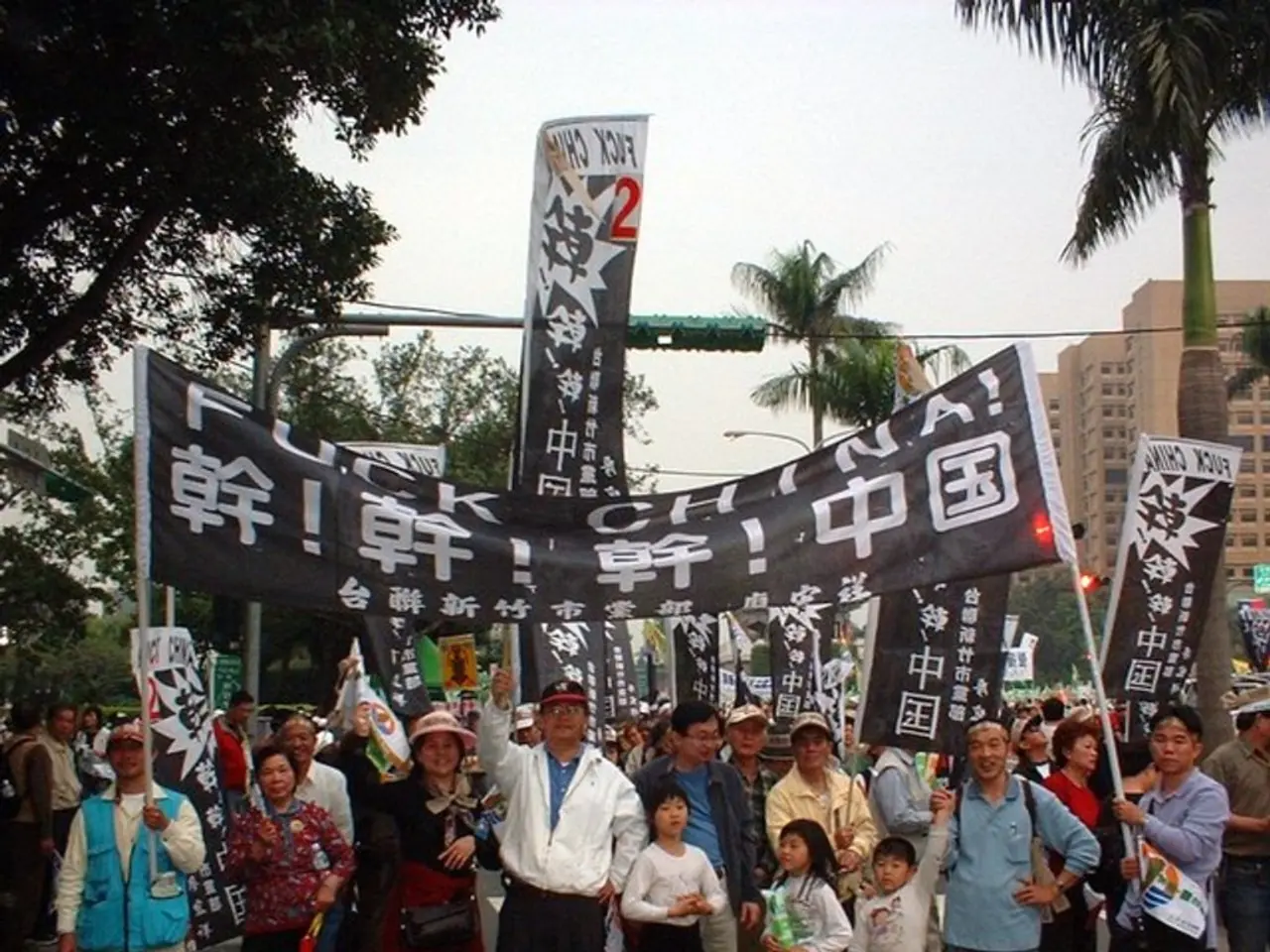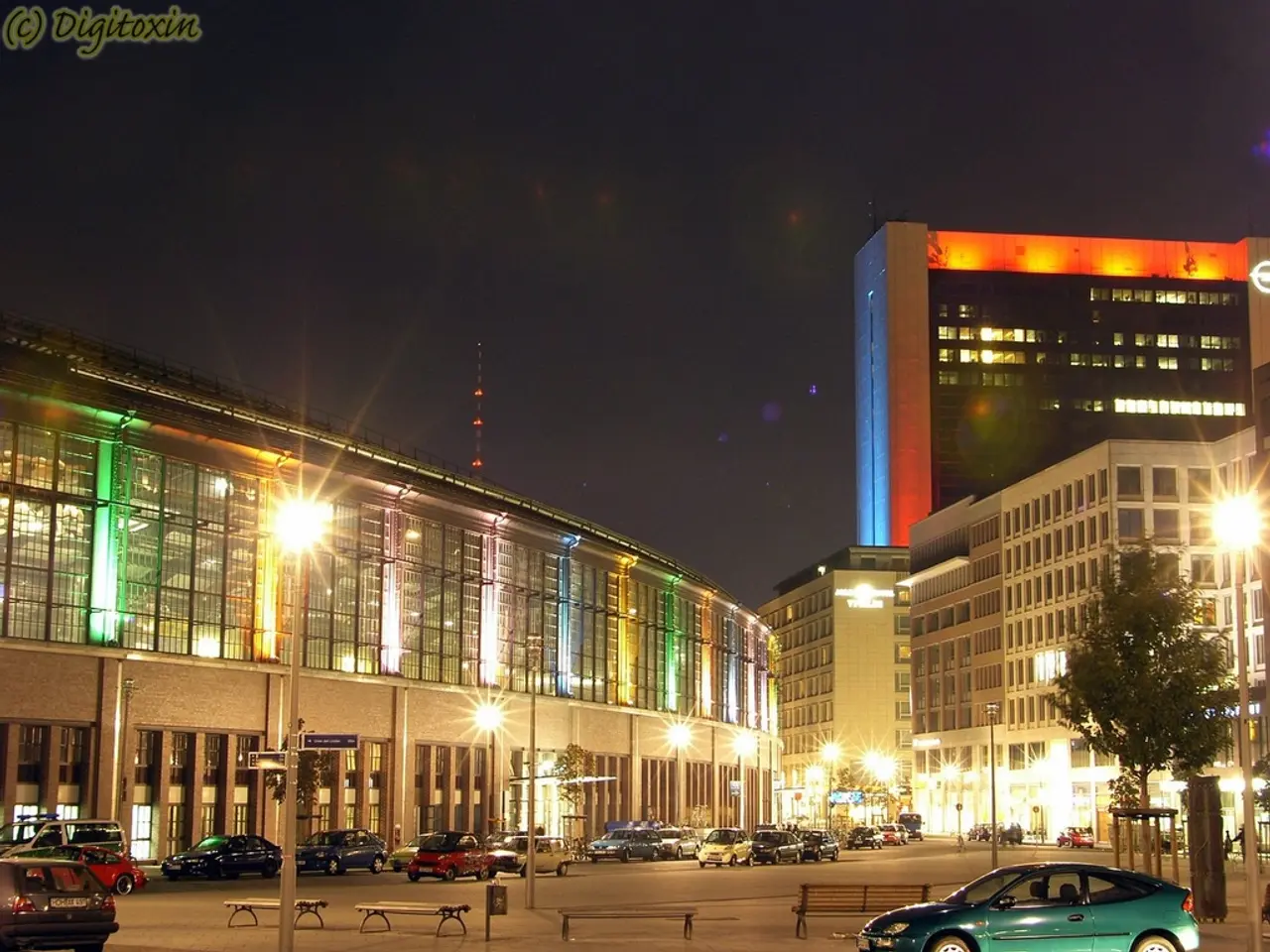No Rainbow Over Bundestag? Evidence of a Tide Turning Against Diversity and Equality
Society's quest for diversity facing pushback?
Article by Aljoscha Prange
The rainbow flag, a symbol of diversity, self-determination, and open society, won't adorn the Reichstag building this year during the Berlin Christopher Street Day (CSD) parade. Instead, it was hoisted alongside federal and European flags on May 17th, albeit with a perceived lack of significant political support. This move has fueled critiques that the contemporary socio-political landscape is growing hostile towards minority groups.
The CSD, an annual event that has become part of Germany's social and political calendar, celebrates and commemorates the first known uprising of queer minorities against police brutality in New York's Christopher Street. In recent years, the rainbow flag hoisting on the Reichstag building served as a clear sign of the nation's commitment to diversity. However, a shift in stance is underway.
Politics: Where Is the Solidarity for Queer People? Show the Flag, Bundestag!
Bundestag President Julia Klöckner announced that the Bundestag will not raise the rainbow flag on July 26th, the day of the Berlin CSD parade. The reason provided by the CDU politician was that the flag was already hoisted on May 17th, signifying the removal of homosexuality from the World Health Organization's diagnostic manual in 1990.
Alexander Irmisch, an SPD politician and co-organizer of the CSD in Regensburg, called for more political solidarity in light of concern over an "abstract threat situation." Because of this threat, the parade in Regensburg has been shortened, despite police assurances that no concrete findings about the event's safety have been discovered. Irmisch explained that these circumstances have forced such measures in the disquieting backdrop of mounting queer-hostility.
Caving In to Right-Wing Tendencies
The queer rainbow network of the Bundestag administration, which had participated in CSDs in recent years, will not do so this year. The newly appointed director of the Bundestag, Paul Göttke, placed this prohibition on the grounds of "mandatory duty of neutrality." The Verdi boss Frank Werneke termed this move as capitulating to right-wing sentiments and anticipated a reversal of the "de facto demonstration ban."
Sophie Koch, the federal queer commissioner, expressed disapproval, stating that such restrictions might convey a wrong and unnecessary message, particularly at this juncture.
The Left Slams the Leadership's Decision
Members of the Left Party and the Greens expressed dismay at the Bundestag leadership's decision, describing it as a political and moral faux pas on all fronts. The SPD called upon Klöckner to allow the queer group of the Bundestag administration to participate in this year's Berlin CSD amid intense scrutiny of the neutrality justification, given the occasion's purpose of upholding the values enshrined in the German Basic Law.
Growing Queer-Hate Across Germany
Cases of queer-hostility and violence are on the rise, according to the German Federal Criminal Police Office. In 2022, 1,765 cases were reported in the sexual orientation category, marking a 18 percent increase from 2023, and 1,152 cases were reported against trans or non-binary people, representing a 35 percent increase.
Threats to Queer Events
The decisions from the Bundestag come as hatred towards queer people escalates. An attack on a diversity festival in Brandenburg's Bad Freienwalde occurred over the weekend, with individuals wielding sledgehammers and wooden boards. At least two individuals were injured.
Politics: Germany Faces Controversy as Attack on Family Festival and Brandenburg Protest Loom
Meanwhile, in neighboring Saxony-Anhalt, a 20-year-old is suspected of announcing an attack on the Christopher Street Day in Wernigerode. Organizers of the parade have filed a complaint, citing the individual's admission to possessing weapons and "70 rounds."
Right-wing extremists have announced a counter-demonstration to the Pride Parade in Berlin's Marzahn-Hellersdorf district for the upcoming weekend, potentially creating a volatile situation.
CDU Policymakers Break Away from Conservative Stance
In contrast, CDU politicians Karin Prien and Kai Wegner are demonstrating a different approach. As in years prior, the Federal Ministry of Family Affairs will participate in the CSD in Berlin. Minister Prien commented to the taz that their ministry will be present again this year with its own vehicle, emphasizing it as "an important sign of recognition and respect for the diversity within our society."
Tides of Change: The Global Backlash Against Diversity and Inclusion
These events mirror a growing transnational movement that opposes progressive gender equality legislation and promotes alternative definitions of the family unit as fundamental to social cohesion. Globally, there is a surge in efforts to curtail LGBTQ rights, such as Hungary's law banning Budapest Pride and the use of facial recognition to track participants, serving as a precursor to an official crackdown on queer visibility and rights.
Simultaneously, major corporations face intense political pressure and financial constraints when advancing diversity and inclusion initiatives, prompting many to scale back such efforts. Resistance to DEI approaches is not only evident through political and grassroots movements advocating for restrictive immigration policies and affirmative action reforms but also through sustained skepticism surrounding the return on investment of such initiatives.
In conclusion, the global landscape is witnessing an unmistakable backlash against diverse societies, with political figures and institutions withdrawing support for queer people and prohibiting participation in pride parades. This backlash aligns with international patterns of resistance that undermine the inclusion and visibility of LGBTQ communities in public and political life. These developments underscore a broader "reset" in attitudes towards diversity, equality, and LGBTQ rights, often grounded in nationalist, conservative, or populist cultural frameworks that resist social and demographic changes associated with a diverse society. Politicians, corporations, and citizens alike must question and combat these growing tendencies to foster inclusivity, celebrate diversity, and preserve individual dignity.
- The controversy surrounding the Bundestag's decision not to raise the rainbow flag during the Berlin Christopher Street Day (CSD) parade raises questions about the political commitment to LGBTQ rights and diversity in EC countries, particularly in Germany.
- Despite growing reports of queer-hate and violence across Germany, there is a noticeable shift in political stance, with some politicians caving in to right-wing tendencies and withdrawing support for queer people, contributing to a global backlash against diverse societies.








